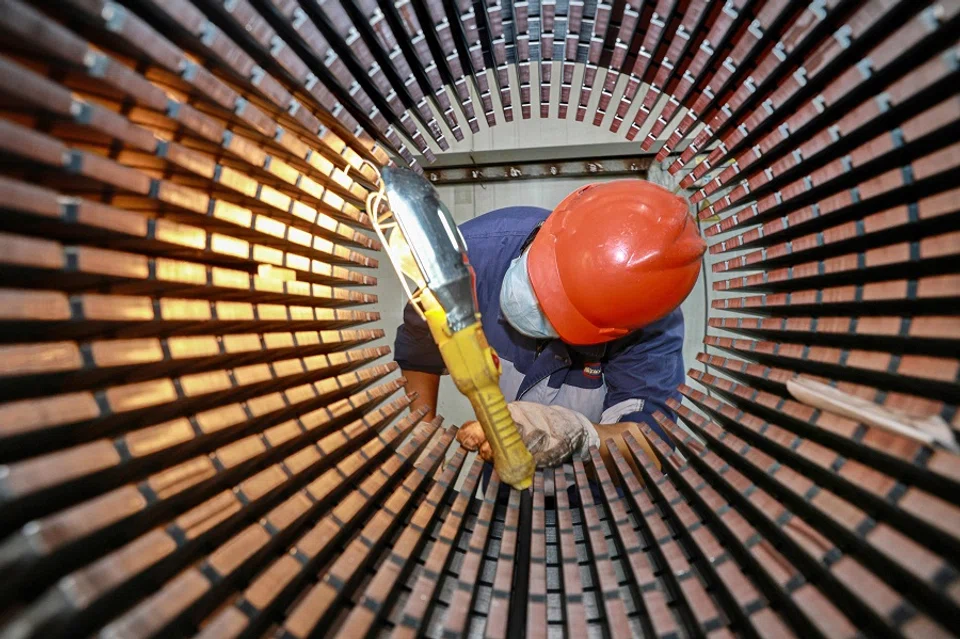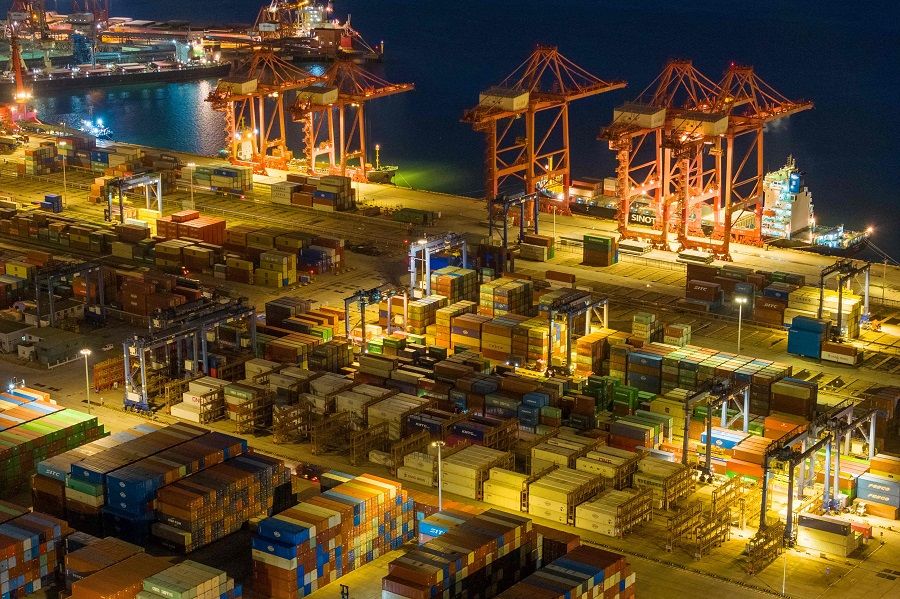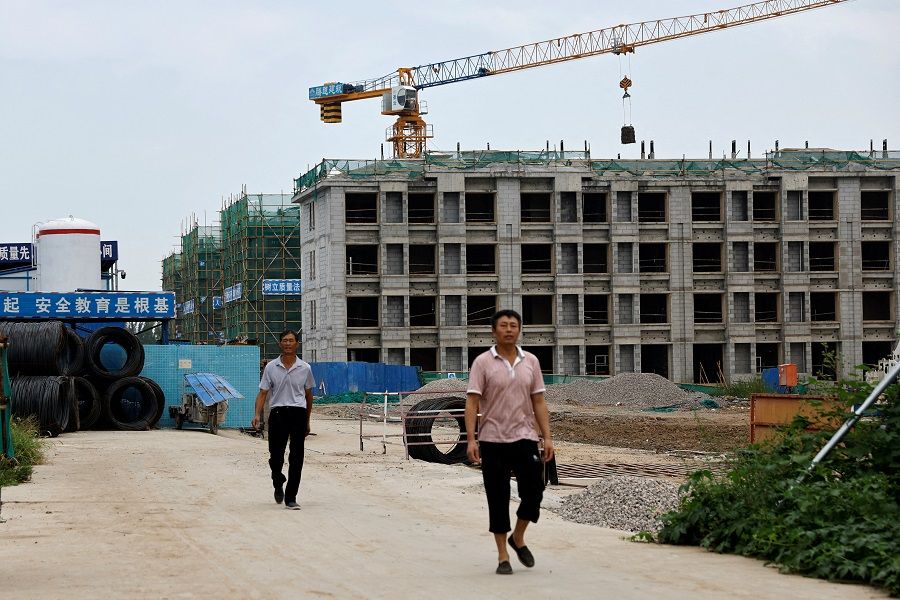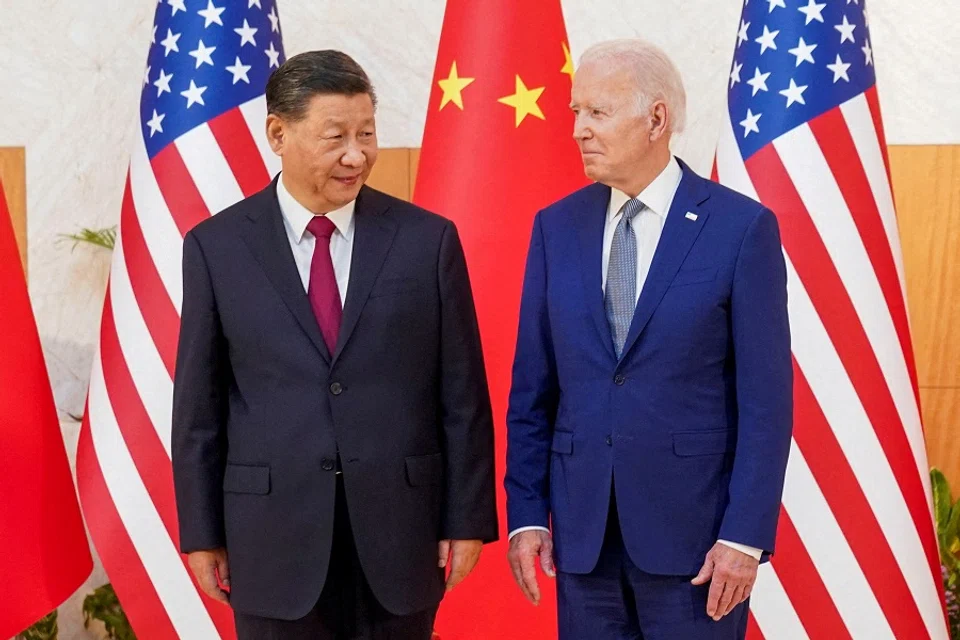China's economic weakness as informed by the 'Taiwan model'

There is no "China model" in developing an economy. China simply followed Taiwan and several Asian countries' export-oriented economic development routes. Its economic rise in the world would not have been possible if the US did not open its market for Chinese goods.
However, China did not follow the path all the way through. The root cause of China's current economic difficulties can be revealed more clearly by comparing Taiwan's development experiences.
Fortunes still tied to the US market
Indeed, in the 1980s and the 1990s, Taiwan had gone through similar economic bottlenecks that China is facing today, notably in terms of trade retaliations from the US and the difficulty in upgrading domestic industries. However, for Taiwan, the pressure of trade retaliations from America was gradually eased by using China as an alternative export platform.
By relocating factories to China with cheaper labour costs, Taiwanese firms were able to keep their products competitive in the global market. At the same time, the headquarters in Taiwan could concentrate on manufacturing goods with higher capital and technology intensity. As a result, exporting industrial goods to China replaced exporting final consumption goods to the US as Taiwan's key engine of economic growth in the past three decades.
However, unlike Taiwan which successfully addressed its export dependence on the US, China's exports today are still largely destined for the US market. This is a trend that is increasingly challenged by the worsening relations between the two countries.
Despite the decreasing shares in recent years, foreign companies still made up 34% of China's total exports in 2021...

China's reliance on exporting to the US market could be a result of the large presence of foreign firms in China's manufacturing sector that are producing exports for the US market. Between 1996 and 2018, foreign companies accounted for over 40% of China's total exports. Despite the decreasing shares in recent years, foreign companies still made up 34% of China's total exports in 2021, according to China's Ministry of Commerce. Foreign firms' importance in China's exports indicates that the relocation of foreign firms' manufacturing production to other countries would have a severe impact on the Chinese economy.
Finding alternatives
Meanwhile, as Taiwan did, China is finding alternative export markets outside of the US to sustain its economic growth. China's manufacturing investment in Southeast Asian countries reached over US$5 billion in 2022, which surpassed Japan's manufacturing investment in the region for the first time, according to ASEAN Statistics. Such overseas manufacturing could help promote China's exports of industrial goods to its investment destinations.
Indeed, China's exports of industrial goods with higher technology intensity to Southeast Asia have made progress over the past few years. In other words, China could completely upgrade its domestic industries without engaging in a technology competition with the US by relocating labour-intensive production to developing countries in the region.
However, moving upward in the supply chain network leads to economic slowdown. To maintain relatively faster growth, the Chinese government shifted its focus to the domestic market to bolster the economy.
Nevertheless, due to the lack of a satisfactory social welfare system, Chinese consumers have tended to save for the future more than spend on current consumption. Hence, despite its huge population, China is still far from being a consumption-based economy.
This is evidenced by China's high gross domestic savings as a percentage of GDP, which was 46% in 2021, far more than the US's 17% (2021) and the European Union's 26% (2022). It is even higher than Japan's 25% (2021) and South Korea's 33% (2022), according to the World Bank.
... while the developers' financial debt remains a burden to the economy, the country will not be able to rely on the property sector to keep its economy going in the future.

Moreover, the country's reliance on the housing market to maintain high economic growth was definitely a wrong step. The slow-moving economy in recent years has strained developers and exposed the liquidity of Chinese banks to severe risk. The Chinese government might want to bail out developers from the debt crisis to prevent a bigger economic crunch.
In the long run, China's growing ageing population suggests diminishing housing demand. Hence, while the developers' financial debt remains a burden to the economy, the country will not be able to rely on the property sector to keep its economy going in the future.
Political factors
In addition, unlike Taiwan's political liberalisation after its economic development, the Chinese government has kept a tight rein on its domestic politics. And unlike Taiwan's active promotion for greater economic freedom, the Chinese government has taken regulatory actions against several private businesses, notably in technology and e-commerce, in the name of "common prosperity". The Chinese state's intervention in private companies has become more evident following the government's push to set up party cells in private companies.
Chinese President Xi Jinping's attempt to build a "socialist ideology with strong cohesion" under excessive Communist Party control, has perverted the model that was originally designed by the US for developing capitalist economies in "free" nations. During the Cold War, America connected the Asian economies through the trade of industrial goods and sending final consumer goods to the US. This consolidated the capitalist economic network and strengthened regional economic prosperity in the face of communist threat.
... China's growing political confrontation with the US, and "no limits" friendship with Russia after the outbreak of the war in Ukraine is at odds with it staying in the "capitalist countries' economic club".

China's political reconciliation with the US in the 1970s was a timely rain when economic chaos was heated up by domestic political polarisation. The US-China rapprochement allowed China to start its economic take-off by following the same export-oriented economic development path and joining the regional economic network. However, in recent times, China's growing political confrontation with the US, and "no limits" friendship with Russia after the outbreak of the war in Ukraine is at odds with it staying in the "capitalist countries' economic club".
The Chinese leadership's complacency about its past economic achievements and concerns over losing its control of the country have resulted in several mistaken policy measures that damaged the economy. Without correcting its autocracy and pulling back its hawkish foreign policy, China risks derailing completely from the track of the growth model that has successfully directed Taiwan's economic development over the last 70 years.
